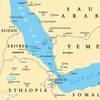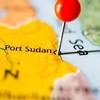KMW Enhances Cylinder Pressure Sensor
Germany's Kaufbeurer Mikrosysteme Wiedemann (KMW) has introduced a higher performance version of its Z01 sensor for measuring cylinder pressure in large diesel, gas and dual-fuel engines.
“The further developments center on the measuring capability, accuracy and robustness of our Z01 sensors,” KMW project manager Daniel Maaß explains.
“To facilitate the measurement of higher combustion pressures and to contribute to overall robustness, we have increased the temperature resistance of the sensing elements we use in the Z01 sensors. At the same time, new connection technology aims to improve overall resistance to both temperature and vibration. Finally, to enable the Z01 to reliably create high definition pressure signals, we have developed signal pre-processing electronics which provide a maximum signal cut-off rate of 40 kHz,” he added.
KMW Z01 cylinder pressure sensors cover applications in the cylinders of combustion engines where the hot combustion gases impinge on the sensing element diaphragm.
“To cope with the high temperatures present, we have developed both a new design of diaphragm and an optimized combination of functional, insulation and passivization layers. These raise the permissible temperature at the diaphragm to as much as 400°C,” Maaß notes.
KMW points out that these improvements come at a time when peak pressures are rising in combustion engines due to developments such as two-stage turbocharging and very high-pressure common-rail fuel injection. There is also a clear need for higher definition signals from sensors for key operating values.
Among these values, cylinder pressure is capable of giving deep insights into both engine performance and condition.
As a result, the data are finding innovative uses in control, monitoring and diagnostic equipment for engines in ships, locomotives, power plants and compressor stations, such as cylinder power balancing to save fuel and wear, and the continuous calculation of NOx formation as a further means of optimizing fuel consumption.
As a further route to improving overall engine performance, reliability, availability and economics, engine data transmitted to remote locations can assist decisions regarding the timing and extent of service and repair interventions.
Similarly, for engine and component manufacturers, the round-the-clock cylinder pressure signals created by KMW’s Z01 cylinder pressure sensors are a becoming a vital input to improving overall engine designs.











